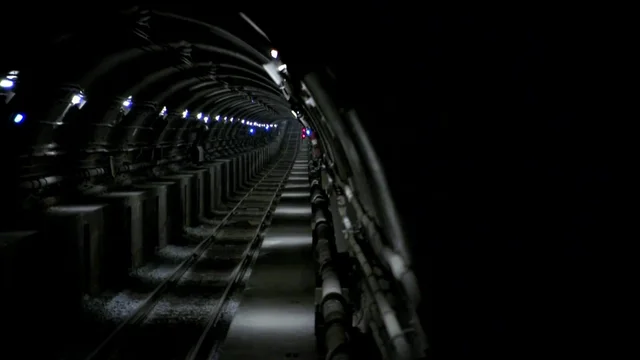In a stunning announcement that sent shockwaves through the New York–New Jersey corridor, former President Donald Trump declared the Gateway Tunnel project “terminated,” threatening to cancel billions in federal funding for one of the region’s most vital transportation initiatives. The move came during an ongoing federal government shutdown, adding even more political tension to an already volatile moment in Washington.
Trump’s remarks — delivered at a press conference on October 15 — were framed as part of his effort to rein in federal spending. But to New Jersey and New York officials, the decision was nothing short of sabotage. “The project in New York—it is billions and billions of dollars that Chuck Schumer has worked 20 years to get,” Trump said. “It is terminated.”
For residents of New Jersey who rely on NJ Transit or Amtrak to commute through the century-old Hudson River tunnels, the news was alarming. The Gateway Program has long been seen as a once-in-a-generation investment in regional infrastructure, promising safer, faster, and more reliable rail service across the Northeast Corridor.
The Gateway Project: A Lifeline for the Region
Originally launched to replace the crumbling tunnels damaged by Superstorm Sandy in 2012, the Gateway Tunnel project has been years in the making. Backed by both states and multiple federal administrations, the $17.18 billion project is designed to modernize the rail link between New Jersey and Manhattan — one of the busiest passenger rail corridors in North America.
The project isn’t just about convenience; it’s about economic survival. Studies estimate that the Gateway Program could generate over $42 billion in regional economic activity and create nearly 100,000 jobs. Without it, transportation experts warn that the Northeast’s rail network could face catastrophic failure if the existing tunnels were to shut down for emergency repairs.
Construction had been moving forward steadily at several active sites, including the Hudson Yards concrete casing and stabilization work under the Hudson River. Officials from the Gateway Development Commission confirmed that despite Trump’s remarks, work remains underway, with state and local funding continuing to support progress where possible.
Political Fallout and Economic Consequences
Trump’s decision comes just weeks before New Jersey’s gubernatorial election, where Republican Jack Ciattarelli faces off against Democrat Mikie Sherrill. The timing immediately sparked speculation about political motives.
For Ciattarelli, who has aligned himself closely with Trump in past debates, the announcement put him in an uncomfortable position. Sherrill’s campaign quickly responded, promising to “take anyone and everyone to court to unstick this money” and accusing her opponent of failing to defend the state’s economic interests.
Meanwhile, New Jersey’s top officials unleashed fierce criticism. Governor Phil Murphy called the funding freeze “an act of economic sabotage,” warning that cutting off the project could “collapse the Northeast Corridor and cripple the national economy.”
Senators Cory Booker and Andy Kim issued a joint statement condemning the move as “a direct attack on New Jersey,” pledging to fight to restore the project’s funding. Representative Josh Gottheimer of Bergen County echoed the sentiment, accusing Trump of “taking a sledgehammer to one of the most important infrastructure projects in the country.”
A Long History of Political Crossfire
The Gateway Tunnel has been a political football for over a decade. Former Governor Chris Christie canceled its earlier version — the Access to the Region’s Core (ARC) project — in 2010, citing cost concerns. The Biden administration revived and secured major funding for Gateway, including a $7 billion federal grant in 2024, which brought total federal support to over $12 billion.
At that point, local leaders declared the project to be at a “point of no return.” Now, with Trump’s declaration, that confidence has been shaken. But New York and New Jersey officials remain adamant that the project cannot and will not die.
What Happens Next
Legal experts anticipate that the battle over funding will likely move to the courts, as the administration’s ability to cancel previously committed funds is far from clear. Congress, meanwhile, will play a central role in deciding the project’s future once the government shutdown is resolved.
Regional leaders have also turned to the business community — including major transportation, construction, and labor organizations — for support in keeping the project alive. To explore how major infrastructure and economic issues like this impact New Jersey businesses, visit Explore New Jersey’s Business section.
The Gateway Tunnel represents far more than just a transportation project. It’s a symbol of the region’s future — a test of whether bipartisan cooperation can overcome political gamesmanship. The fight for Gateway is now a fight for the economic heartbeat of the Northeast itself.












